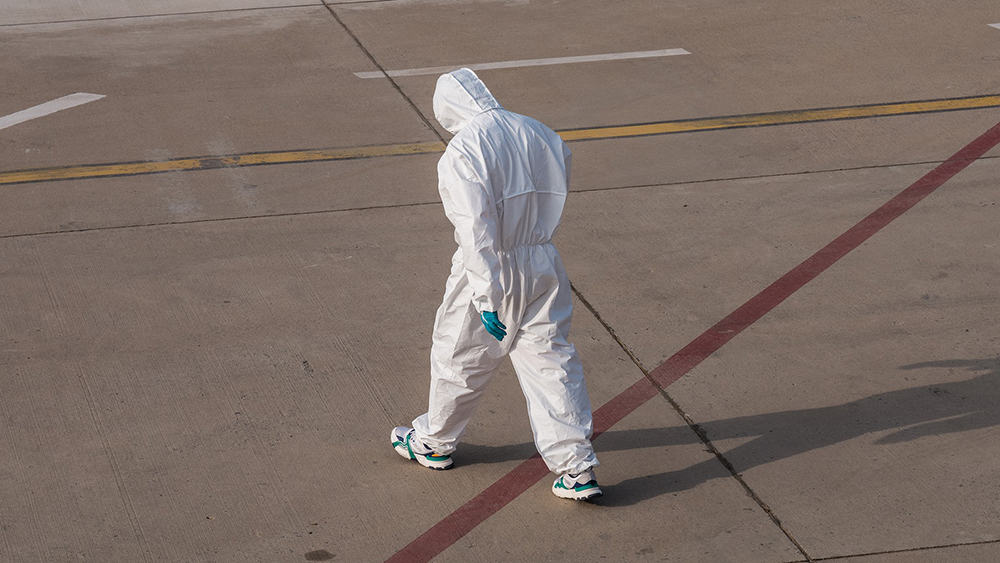Polls conducted by YouGov and Wakefield Research show the majority of Americans want the government to invest in better pandemic preparedness in the wake of the COVID-19 pandemic. The findings display strong bipartisan support for increased funding for pandemic preparedness—and a willingness by taxpayers to fund it—because the government was not prepared in 2020 when COVID-19 spread to the United States.
The findings are all the more important considering that 61% of YouGov’s respondents believe another pandemic is on the horizon.
Voters call for funding for pandemic preparedness
Strong majorities of respondents in both polls support increasing funding for pandemic preparedness at all levels of government—federal, state, and local.
For example, 53% support investing in global pandemic preparedness, given that it is a national security issue and people experienced how quickly COVID-19 spread around the globe.
The YouGov poll, which was commissioned by PAX sapiens and Pandemic Action Network, asked participants what amount they would personally contribute to better pandemic preparedness on an annual basis to fund “a reliable and effective national and global system to help detect, prevent, and rapidly respond to outbreaks to help stop them from spreading and becoming deadly and costly pandemics.” The generalized findings showed an annual voluntary contribution by 144 million American taxpayers of between $3.6 and $83.5 billion.
Half of the respondents in the Wakefield poll said the federal government is currently spending too little on pandemic preparedness. Given the often polarizing nature of increased government spending, the polling data shows the impact of the pandemic and fears over how the U.S. government will effectively respond when the next one will emerge, an event experts say is inevitable.
The Wakefield poll found 77% of Americans would be more likely to support a candidate who supports increased funding for pandemic preparedness. Healthcare Ready’s Executive Director Tom Cotter said, “Fully funding preparedness isn’t just an issue of public health—it’s one of national security and economic stability.” (Healthcare Ready and the Biotechnology Innovation Organization commissioned the poll.)
Meanwhile, 14% of Americans polled by YouGov said they lost their job due to the coronavirus, and 31% suffered economic loss. Widespread economic and employment issues, particularly youth unemployment, have been shown to contribute to political instability.
The other costs of COVID-19
The COVID-19 pandemic garnered immense economic and social costs. The United States had the highest death rate in the world, having lost over 1.1 million people. The pandemic was the third-leading cause of death in 2020-2021. Among YouGov’s respondents, 37% personally know someone who died due to COVID-19, while 18% reported a decrease in mental health during the crisis.
The federal government spent an estimated $14 trillion on pandemic-related economic and social costs. Still, close to half of respondents displayed optimism the U.S. government would be more prepared for the next pandemic, given the systems that were put in place to deal with COVID-19.
The Wakefield poll showed the three most pressing consequences should America face another public health emergency are economic disruption (75%), a public health crisis (75%), and significant loss of life (73%). When asked about proactive measures the federal government could take to better respond to a public health emergency, the responses that garnered the most support were coordination between state and local governments, stockpiling medical equipment and supplies, and expanding healthcare access. There was strong support for the federal government expanding long-term preventive measures to assist in avoiding future pandemics, with 90% strongly or somewhat agreeing.
Data from the two polls display overwhelming support for more action on pandemic-related healthcare, including funding and preventive measures. The data also shows how strongly the pandemic affected Americans, and even garnered bipartisan support for taking bolder measures, given the social and economic impacts of the COVID-19 pandemic.
The effects of COVID-19 are still being felt, as more people work from home, and many continue to wear masks in public spaces. The polling data may help expand policies to prevent future pandemics, as policymakers can understand what health-related issues are important to constituents.




